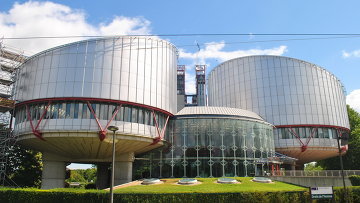MOSCOW, July 18 (RAPSI) – The European Court of Human Rights (ECHR) has communicated two cases being joinders of complaints submitted by Russian nationals, who at various times and in various locations of the Russian Federation took part in protest actions, as materials in the Court’s database read.
As concerns the first case, which includes 19 complaints submitted by 24 applicants, the ECHR has formulated both common and case-specific questions addressed to the Russian government. In particular, the Court intends to find out if the circumstances of each case, taken separately or cumulatively, disclose an “interference” under Articles 10 (freedom of expression) or 11 (freedom of assembly and association) of the European Convention for the Protection of Human Rights (the Convention), and, if true, was such interference prescribed by law, pursued a legitimate aim, and was it “necessary in a democratic society.” Besides, the Court is interested to know if the authorities’ efforts to put an end to group events organized without prior notification of the authorities constituted a disproportionate interference with the freedom of assembly under Article 11 of the Convention.
In the second case being a joinder of three complaints concerning the excessive force used by the police in the course of arrests of the applicants taking part in protest actions, the ECHR asks the Russian Government if the medical certificates submitted by the applicants were evidence that they were subjected to ill treatment, in breach of Article 3 (prohibition of torture) of the Convention, and if the Government had plausible, satisfactory, and convincing explanations as to how they suffered their respective injuries.
Besides, the Court asked the Russian Government to explain if the recourse to physical force was strictly necessary by the conduct of the applicants and if they presented a danger to public order or engaged in acts of violence. Moreover, the ECHR inquired if the authorities carried out an effective official investigation into the applicants’ allegations of ill-treatment.



